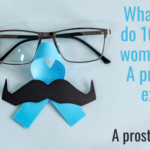Residents living in the Southern states are more likely to have unpaid medical debts, but are also more likely to benefit from recent changes to credit reporting guidelines regarding medical debts, according to a report issued this week by the Consumer Financial Protection Bureau.
The CFPB issues a pair of reports — Banking and Credit Access in the Southern Region of the U.S., and Consumer Finances in the Rural Southern Region. The CFPB chose to focus on the Southern states because of its diverse demographics and because consumers in that part of the United States face different challenges when it comes to banking and finance than other parts of the country.
“The rural South faces distinct challenges when it comes to fair access to banking,” said CFPB Director Rohit Chopra, in a statement. “Understanding regional differences across the country will help us determine where financial marketplaces can work better for all.”
About 28% of individuals living in the South have an unpaid medical debt on their credit report, compared with 17% of consumers living in other parts of the country. On the flip side, changes to credit reporting guidelines that remove medical debts with balances under $500 are benefiting more consumers in the South than other parts of the country. About one-in-five rural Southerners are more likely to have at least one medical debt eligible to be removed from their credit report, compared with 15% for non-rural Southerners and 12% of consumers living elsewhere.
Medical debt is the most common type of debt for a consumer in the rural South to have. And those who have unpaid medical debts are more likely to have other types of delinquencies, too, according to the report. Nearly 40% of consumers who have a medical debt in collection are also behind on their credit card payments, and 33% are delinquent on their auto loans. Sixteen percent of rural Southerners with an auto loan are at least 60 days delinquent. If they also have a medical debt in collection, that delinquency figure more than doubles to 33%.









